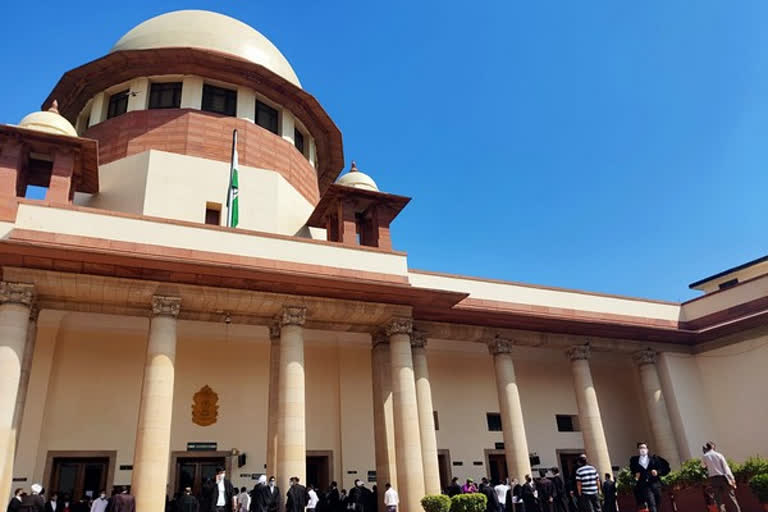New Delhi: The Supreme Court Friday said lapse or omission to carry out DNA profiling cannot be permitted to decide the fate of trial for the offence of rape, especially when it is combined with murder, as the cause of criminal justice would become the victim in case of acquittal only on account of such a flaw in the investigation.
The apex court observed while commuting the death sentence, awarded to a man for raping and murdering an eight-year-old girl, to life imprisonment with the stipulation that he shall not be entitled to premature release or remission before undergoing actual sentence for a period of 30 years. A three-judge bench headed by Justice A M Khanwilkar delivered its verdict on an appeal filed by the convict who had challenged the judgement of the Madhya Pradesh High Court which had confirmed the capital punishment awarded to him in the case by a trial court.
The bench, also comprising Justices Dinesh Maheshwari and C T Ravikumar, noted that the advocate appearing for the convict had contended that no DNA test was conducted to connect the appellant to the samples found on the body of the deceased, and thereby, section 53A of the CrPC was violated. Section 53A of the Code of Criminal Procedure (CrPC) deals with the examination of the person accused of rape by a medical practitioner.
Also read:SC refuses to entertain postpone NEET-PG-22 examination, says would affect patient care
In view of the nature of the provision under section 53A CrPC and the decisions referred. we are also of the considered view that the lapse or omission (purposeful or otherwise) to carry out DNA profiling, by itself, cannot be permitted to decide the fate of a trial for the offence of rape especially, when it is combined with the commission of the offence of murder as in case of acquittal only on account of such a flaw or defect in the investigation the cause of criminal justice would become the victim, the bench said in its 84-page judgement.
It noted that even if such a flaw had occurred in the investigation in a given case, the court has still a duty to consider whether the materials and evidence available on record before it is enough and cogent to prove the case of the prosecution. In a case which rests on circumstantial evidence, the court has to consider whether, despite such a lapse, the various links in the chain of circumstances form a complete chain pointing to the guilt of the accused alone in exclusion of all hypothesis of innocence in his favour, it said.
